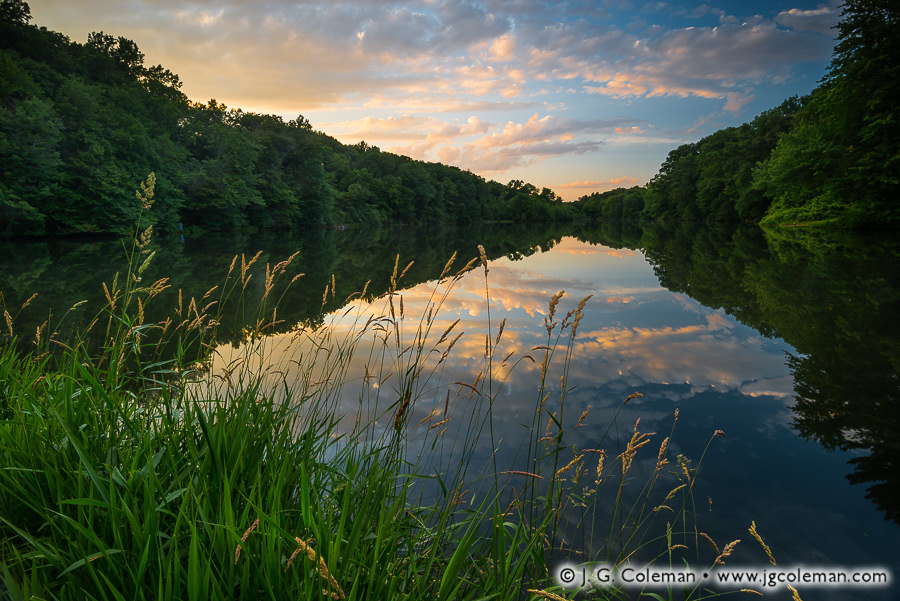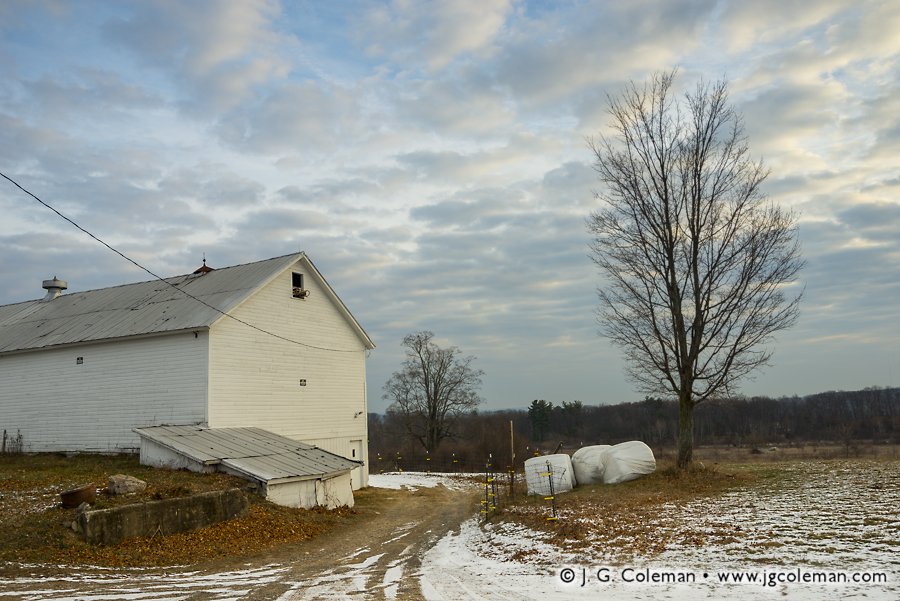
Hoppers Birge Pond Nature Preserve, Bristol, Connecticut
In my piece, “Becalming Birge Pond”, colors streak across a sunset sky over Central Connecticut as the first day of summer comes to a close on the mirror-like waters of Birge Pond.
Centuries-old ponds and waterfalls that once powered streamside mills are quite prevalent in my work, especially because most have long-since been retired from serving industrial purposes and blossomed into places of natural beauty. Birge Pond may have had similar origins and enjoys a similar golden era in its “retirement”, but its final stint of commercial use in the early 1900s was of a sort that has largely been forgotten in modern times. Consider that, prior to electric refrigerators becoming a widespread appliance, cooling food or drink during the warmer months of the year meant storing it in an insulated icebox beside a brick of ice. But if there weren’t refrigerators in homes, and if ice couldn’t be produced using industrial freezers, then how in the world did folks find ice for their iceboxes in the middle of the summer?
Birge Pond was one of many long-standing “ice ponds” across Connecticut which, once naturally frozen in the wintertime, would be harvested of its ice. The large, quarried ice blocks would then be tucked away in spacious barns to be stored and eventually sold throughout the coming year. Proper ventilation and generous packings of hay for insulation were actually so effective that some ice houses, such as the Southern New England Ice House that operated on Birge Pond, could reportedly keep ice for up to a couple years after harvest!
The industry of harvesting and selling ice was so essential and so ubiquitous in those earlier days that it probably seemed as if it’d be around forever. But as innovators worked through various ways to incorporate refrigerants into early designs of “electric iceboxes”, everything began to change. The Southern New England Ice House on Birge Pond was shuttered in 1933 and torn down shortly afterwards. Refrigerators became commonplace by the 1940s and ice harvesting, a widespread and commonplace industry just a few decades earlier, was relegated to the history books.
Purchase a Fine Art Print or Inquire About Licensing
Click here to visit my landing page for “Becalming Birge Pond” to buy a beautiful fine art print or inquire about licensing this image.
Want to See More?
Be sure to check out more of my work from Bristol, Connecticut.



